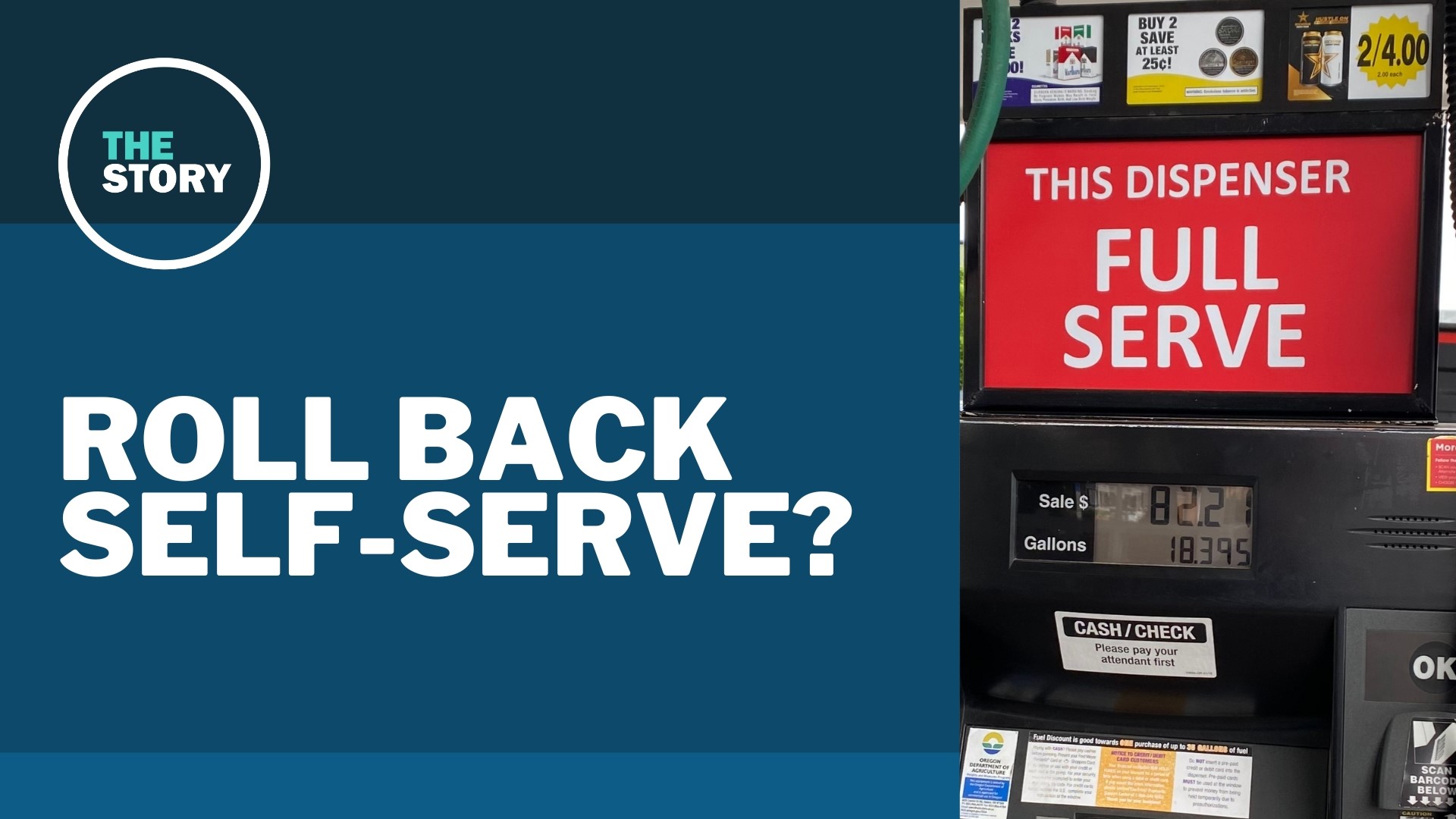PORTLAND, Ore. — It's been just a few months since it became legal for Oregonians to pump their own gas, but that's apparently long enough for Oregon's largest union to conclude that it's time to undo the change. OPB reported this week that the United Food and Commercial Workers Local 555 branch will field a ballot measure asking Oregon voters to roll back the self-serve law.
Oregon used to be one of only two states that banned self-serve gas, and the policy held firm through several attempts to abandon it in recent decades. But the tide turned this year with the passage of House Bill 2426, which changed the rules to only require attendant service at half the pumps at each gas station, giving operators the option to switch the other half to self-serve — and many of them did so as soon as Gov. Tina Kotek signed the bill in early August.
The union's proposed Fuel Safety and Accessibility Act was filed Wednesday, according to the Oregon Secretary of State's online tracking system, and the text of the measure appears to not only repeal HB 2426 but also roll back an intermediate step that Oregon took several years ago to allow limited self-serve in rural counties.
The measure makes no mention of that exception, stating only that gas must be dispensed by attendants across the board unless the customer is on a motorcycle.
The Pacific Northwest UFCW branch is currently engaged in a strike by local pharmacists against employer Kaiser Permanente, but spokesman Miles Eshaia took a break to chat with KGW's Pat Dooris about why the union wants to see Oregon go back to the way things were before the self-serve law.
"Part of it has to do with accessibility," he said. "People with disabilities should have full access to gas stations and other public accommodations. Part of it is safety — nationwide, two-thirds of all civilian injuries caused by gas station vehicle fires are due to unintentional human error."
Eshaia also claimed that HB 2426 has had a negative workforce impact, causing job positions to be eliminated around the state and workers to be laid off or transferred.
"The result has been less jobs and more people looking for work, which is bad for workers but oddly good for gas station profits," he said.
The text of the proposed measure also addresses the issue of gas prices, noting that Oregon's before-tax prices tended to be lower than in California and Washington before HB 2426, despite the fact that those two states allowed self-service, and arguing that any savings from employing fewer attendants must therefore have gone to the gas industry rather than Oregon consumers.
Polls have generally shown that a solid majority of Oregonians support having the option to pump their own gas — a DHM poll from January 2021, for example, showed 63% in favor and 30% against. But Eshaia rejected the idea that the union's ballot measure could be a doomed effort.
"Oregon has been a great bastion; Oregon and New Jersey have been a bastion against (self-serve), which is just a grab of corporate profits because they want to have less workers, because less workers simply means they don't have to pay people," he said. "It's not tilting at windmills. We're trying to do the right thing for the workforce, for Oregon's economy: keeping money in the economy, not going out of state to giant multinational corporations. They should pay the people working at their gas station. They should make it safe for people who are coming and getting their gas."
OPB reported another possible reason: The union never liked HB 2426, but held its fire when the bill came up during the legislative session because there had been a promise that another bill would also advance: House Bill 3183, aimed at making it easier for cannabis industry workers to unionize. But HB 3183 never made it out of the session.
"We were told by (state Rep.) Julie Fahey's office that if we refrained from opposing the bill, another bill to expand workers' rights or increase organizing opportunities would move alongside of it," Eshaia said. "Seeing as how we were under the impression that (HB 2426) was going to go through, we took that advice. But House leadership cared more about big business than working people."
The union also appears to be trying to get HB 3183 done via the ballot. A separate petition filed in June has similar language to the defunct legislation, requiring cannabis businesses to submit proof of "labor peace agreements" to the Oregon Liquor and Cannabis Commission when applying to obtain or renew their licenses. The gas and cannabis labor measures both list UFCW Local 555 president Dan Clay among their chief sponsors, along with the union's office address.
Whatever the reason, UFCW Local 555 has its work cut out for it — each measure will require the union to collect 117,173 valid signatures by July in order to qualify for the November 2024 ballot.

